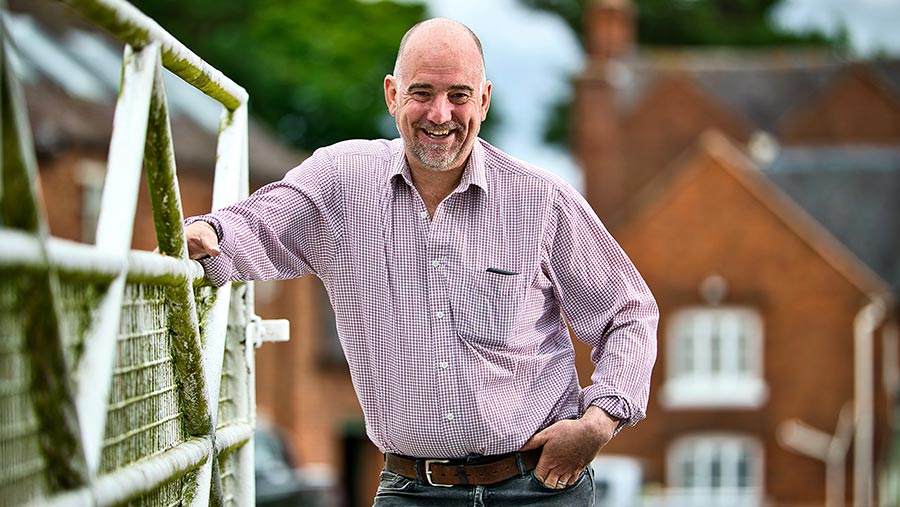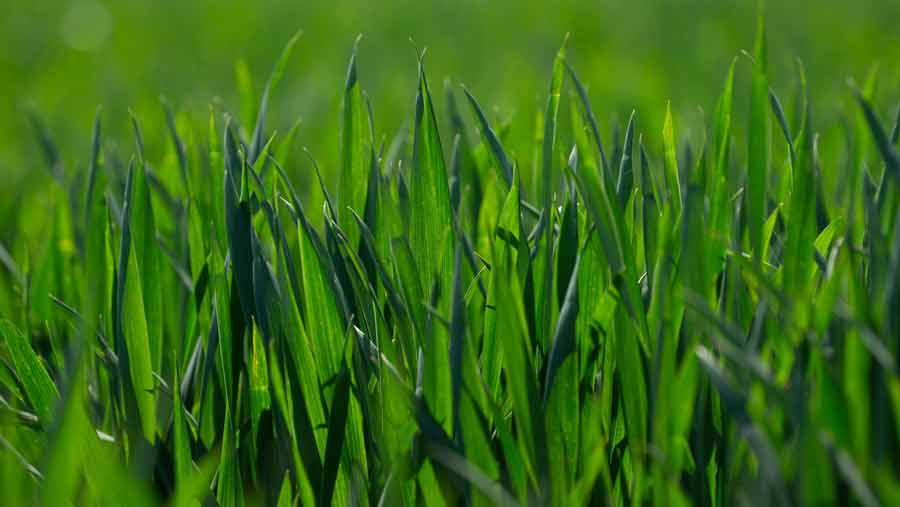Crop nutrition focus saves farmer over £43,000 on costs
 Tim Parton © Richard Stanton
Tim Parton © Richard Stanton Staffordshire arable farmer Tim Parton believes pest and disease attacks can be successfully controlled through healthy crops and nutrition – so much so he slashed more than £43,000 from the chemical costs for his winter wheat last season.
By placing nutrition at the heart of his crop production strategy, Tim has eliminated the need for fungicides, seed dressings, plant growth regulators and pesticides, and relies instead on optimum crop nutrition.
“Sometimes I don’t use any herbicides – if I do, it’s only about £35/ha, where previously I would have been well over £100/ha,” says Tim.
See also: Why urea fertiliser use is changing this spring
See also: How treated urea is helping farming company to improve NUE
“Nutrition is everything when it comes to crop health. If crops are deficient in any mineral they will be deficient in the enzyme that requires that mineral to operate and this will greatly reduce plant resilience, growth and yield,” he says.

© Tim Scrivener
Calcium is king
For Tim, calcium is the king of nutrients, which is why he regularly applies it to crops throughout the growing season according to sap test results.
“Calcium is the glue that holds plants together – it is the strength of all living things, without which plants are weak and open to attack.
“Calcium defends against fungal and bacterial infections, stimulates enzymes and helps with cell signalling, cell strength and cell division. In fact, without enough available calcium, root development will cease,” he says.
At the time of drilling – no matter what crop is being grown – Tim also applies silicon in the form of diatomaceous earth, humic and salicylic acid, alongside a compost extract full of microbes and fungi.
When growing oilseed rape, magnesium, sulphur, molybdenum and boron are also added to the mix.
“Beneficial microbes that form throughout the plant can be enriched over time by providing the plant with adequate nutrition to give crops a natural barrier of protection,” he says.
Tim takes regular sap analysis and tissue tests to tailor nutrients to crop requirements.
He keeps records of each season to build up a database of what nutrients may be deficient during certain times of the year and after specific weather events.
He points to the importance of looking and listening to what your land is telling you.
“All plants are growing in a particular place for a reason. Weeds do not just grow by chance – they are telling you something, you’ve just got to identify it,” he says.
For example, groundsel is an indicator of low calcium and low phosphorus levels and also signals high soil magnesium and iron levels.
This can be a useful indicator of what nutrients may be deficient in your crops.
Launch of new ‘intelligent farming’ website
Tim has launched a new website to help farmers and growers take the first step into a more nutrition-led farming system, which is less reliant on chemical inputs.
With more than 20 years’ experience, he has developed a deep understanding of the relationship between soil health and crop productivity.
For a membership fee of £300/year, website members can seek advice, ask questions and keep up to date with Tim’s weekly regenerative farm diary.
“I believe that by nurturing functioning soil, we as farmers can not only achieve better yields, but also contribute to a healthier planet,” he says. For more information visit: timpartonfarming.com
Nutrition costings |
||
| Inputs | Tim’s conventional min-till (£/ha) | Tim’s nutrition farming (£/ha) |
| Fertiliser/ nutrition | £548 | £587 |
| Granular phosphorus and potassium | £100 | 0 |
| Fungicides | £160 | 0 |
| Protein spray | £60 | 0 |
| Growth reg | £19 | 0 |
| Insecticides | £7.50 | 0 |
| Herbicides | £100 | £35 |
| Total | £994.5 | £622 |
| Wheat chemical savings: £372.50/ha
Chemical savings on 117ha: £43,582.50 |
||
Machinery costings |
||
| Machinery passes | Tim’s conventional min-till (£/ha) | Tim’s nutrition farming (£/ha) |
| Spray passes at £14.80/ha | Seven passes = £103.70 | 12 passes = £177.60 |
| Cultivation | £49.42 | 0 |
| Drilling | £74.13 | £61.77 |
| Ring roll at £19.76/ha | £19.76 | 0 |
| Fert spinner pass at £12.5/ha | Five passes= £62.50 | Two passes= £25 |
| Total | £309.51 | £264.37 |
|
Wheat machinery savings: £45.13/ha Machinery savings on 117ha: £5,280.21 |
||

